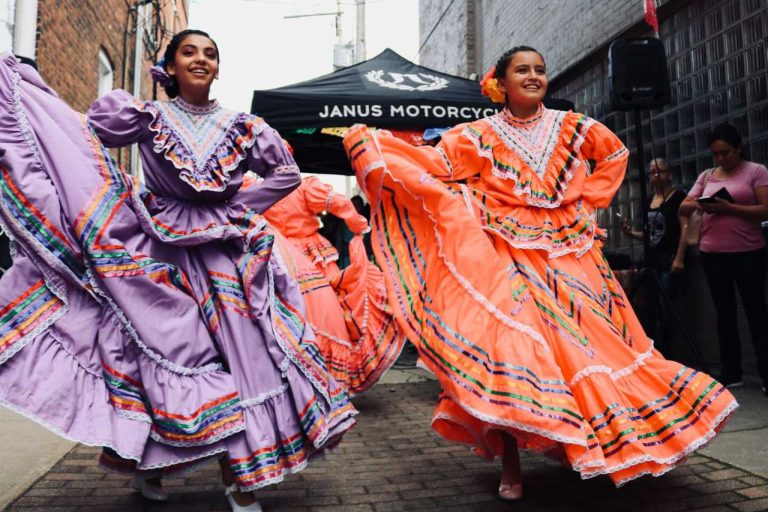
Saber vs Conocer in Spanish: Which Verb to Use and Where
DATE:
Ever found yourself puzzled by the difference between “saber” and “conocer” in Spanish? You’re not alone. These two verbs both translate to “to know” in English, but they’re far from interchangeable. Understanding when to use each one can make all the difference in mastering the Spanish language. Let’s dive into the nuances of these tricky verbs and clear up the confusion once and for all.
How To Make The Right Choice Between “Saber” and “Conocer”
One of the most frustrating parts of language learning is when your new language has two different words for the same word in English. This is exactly the case with the Spanish verbs Saber and Conocer.
The two verbs can both translate to mean “To Know”, so this means that when you just started learning Spanish, it can be pretty difficult to know which of these important verbs you want to say.
And that’s exactly why we’re here! Today you’re going to learn everything you could possibly need to know about these irregular verbs Saber and Conocer and by the end of it, you’ll be using them to speak Spanish like a pro.
Main Differences Between “Saber” and “Conocer”
Let’s talk about these two verbs. Saber and Conocer have some big conceptual differences that make it relatively easy to understand, so we can start with the easy stuff. For now, we’re going to focus only on some abstract ideas in the present tense.
When to use “saber”
Let’s have a reminder of how to conjugate Saber in the present tense (indicative), this way it’s fresh in our mind when we start looking at examples.
|
Spanish Personal Pronouns |
Verb Saber Infinitive Form |
|---|---|
|
Yo |
Sé |
|
Tú |
Sabes |
|
Él / Ella / Usted |
Sabe |
|
Vos |
Sabés |
|
Nosotros / Nosotras |
Sabemos |
|
Vosotros / Vosotras |
Sabéis |
|
Ellos / Ellas / Ustedes |
Saben |
DID YOU KNOW..?
Vos is typically only used in parts of South America and Vosotros is typically only used in parts of Spain.
Did you remember all the conjugations for the verb Saber? In the present tense, only the yo form is irregular, so it shouldn’t be too difficult! Now, on to the meaning shades.
The verb Saber is used to describe that you know or understand something, most commonly facts or learned skills. Here’s a few examples of the verb Saber in the context of facts:
- ¿Usted sabe llegar al cine? – Do you know how to get to the movie theater?
- Ellos saben lo difícil que es. – They know how difficult it is.
- No sabe la diferencia entre saber y conocer. – He doesn’t know the difference between Saber and Conocer.
In the first example, you are asking someone if they know the way to the movie theater, as in, do they have the directions memorized, and can they recite them? Using the verb Saber in this context implies that they can tell you how to get to the movies.
The second example is even more obvious. They know for a fact how difficult something is. The “it” being difficult is a fact and they have knowledge of it. This is similar to the last example; the person does not have knowledge of the difference.
Now, here’s some examples of using the verb Saber to talk about learned skills:
- Yo sé hablar español. – I know how to speak Spanish.
- Nosotros sabemos jugar al fútbol. – We know how to play football (soccer)
- Ella sabe cocinar. – She knows how to cook.
Did you see a pattern with this one? When you want to say “know how to ___”, you’re most likely going to be using Saber rather than Conocer.
You probably never thought that the word “Know” can have so many different meaning shades! Don’t worry, we’ll keep looking at more examples.
When to use “conocer”
Just like we did with Saber, let’s have a quick reminder about how to conjugate this verb in the present tense. And the same thing goes for Conocer, it’s only irregular in the yo form.
|
Spanish Personal Pronouns |
Verb Conocer Infinitive Form |
|---|---|
|
Yo |
Conozco |
|
Tú |
Conoces |
|
Él / Ella / Usted |
Conoce |
|
Vos |
Conocés |
|
Nosotros / Nosotras |
Conocemos |
|
Vosotros / Vosotras |
Conocéis |
|
Ellos / Ellas / Ustedes |
Conocen |
Both Saber and Conocer mean “To Know”, but how do you use Conocer in Spanish, then? The quick answer is that Conocer is used to express that you’re familiar with something or someone, you know someone, or that you know about the existence of something.
Here are some examples to try and elaborate on this subtle difference:
- No conozco a nadie que hable ruso. – I don’t know anyone that speaks Russian.
- ¿Conoces Roma? – Are you familiar with Rome (the city).
- No conoces a Juan pero yo sí que lo conozco – You don’t know Juan, but I do.
The first thing you should notice here is that you often use the verb Conocer with people (and don’t forget the a personal). With people, Conocer refers to whether or not you know someone.
Luckily, in English, we have the translation of “know someone” vs “know of someone”. Well in this sense, Conocer always means to know the person.
However, it can also be used to say you’re familiar with a place. The second example is a great expression to know when learning Spanish. Using Conocer with a place is a great way that Spanish natives express the idea of familiarity with a city. For example, if you were born and raised in NYC, you could say “yo conozco NYC”.
So those are the two most common ways to use Conocer – for people and places. Now let’s dig a little deeper and practice some of the hard stuff!
Specific Differences Between Saber And Conocer
Now we’re going to look at the verbs Saber and Conocer in more specific contexts, rather than from just a general conceptual understanding.
Saber vs Conocer in the pretérito
As you know, the Spanish language has a lot of different ways to express things happening in the past, and in the preterite, there are some Spanish verbs that have a very obvious meaning change to native speakers.
In the preterite tense, Saber means “found out”, whereas Conocer means “met”. Let’s look at these two sentences:
- Ayer supe que tengo alergia al glúten. – Yesterday I found out I have a gluten allergy.
- Mis padres conocieron a mi novio el viernes pasado. – My parents met my boyfriend last Friday.
So the good news is that in the preterite tense, the difference between Saber and Conocer makes sense and is easy to memorize. But the bad news is that this isn’t true in any of the other tenses. But Spanish had to have something easy when it came to the preterite tense.
Saberse
Again, this is another specific case of a difference between Saber / Conocer. Here, when we’re talking about a pronominal use of Saber – that is, adding the -se is necessary to give the verb a different meaning – we get the translation “to memorize”.
Here are some examples to make it easier:
- ¿Te sabes la letra de tu canción favorita? – Do you have the lyrics to your favorite song memorized?
- Ya me sé todas las conjugaciones. – I already memorized all the conjugations.
- No se saben sus horarios aún. – They don’t have their schedules memorized yet.

Conocerse (pronominal)
Here’s some more bad news: You can also use Conocerse to say that you know something by heart. In fact, it can be used interchangeably with Saberse. The difference is some small connotations, where Saberse is to say you memorize something 100%, but Conocerse is more like just to express familiarity with it.
Here are some examples:
- Esa excusa ya me la conozco. – I’ve already heard that excuse.
- El camino ya me lo conozco. – I know the way there by heart.
Ok, so these two examples aren’t literal translations, but they express the meaning better. For example, in both cases, you could use Saber instead of Conocer. However, by using Conocer, you are emphasizing your familiarity, rather than your memorization of it.
If you said, “esa excusa ya me la sé”, you’re saying that you’ve probably used that excuse before and you completely know it. But with Conocer, it’s focused on the fact that you’ve heard it many times.
Don’t get so caught up on this, though. The truth is that Conocerse isn’t used very frequently like this, but now you can’t say you weren’t warned!

Conocerse (reciprocal sentences)
This usage of Conocerse is far more common. You use it to talk about two people knowing each other (hence: reciprocal). Here are some simple examples:
- Nos conocimos de pequeños. – We met when we were little.
- ¿Cómo se conocen? – How did you guys meet?
- No nos conocemos, ¿verdad? – We haven’t met, right?
If you need to use Conocer, this is likely the context you’ll need to use it in. So as you learn Spanish, you’ll hear this verb used very frequently. And once again, it’s not too difficult! So even though there are lots of differences between Saber and Conocer, at least this one is easy!
Having difficulty remembering how to use Spanish reflexive verbs? Click that link and check out our guide.
And finally, we only have one more to go through:
Spanish expressions with the verb Saber
The word Saber is one of the most common verbs in the Spanish language, so it’s only natural that it would be used in a lot of expressions. Here is a quick list of some of the most common ones:
|
Spanish Expressions |
English Translations |
|---|---|
|
Que yo sepa… |
As far as I know… |
|
De haberlo sabido… |
If only I had known… |
|
¡A saber! |
Who knows! |
|
Vete a saber |
Your guess is as good as mine |
|
Ya lo sabía yo |
I thought as much |
|
¿Yo qué sé? |
How should I know? |
|
Para que lo sepas |
For your information |
This is just a small list, but they’re all really great expressions to keep in your back pocket. So the next time someone asks you a difficult question in Spanish, you can tell them: “¿Yo qué sé?”
Now You Know The Differences Between Saber vs Conocer!
That’s all there is for these two verbs! ¡Ya conoces todas las diferencias! And hopefully, after a little bit of practice, te las sabrás, también.
As you can see from today’s post, every once and a while you come across some really complicated concepts when studying languages. Especially when your new language has two words that translate to the same thing in your native language.
But not all hope is lost! It just takes a bit of practice, and in no time, they’ll just naturally start making sense in your head.
So when you’re ready to put the new skills que sabes to the test, go ahead and sign up for a free private class or a 7-day free trial of our group classes so you can practice what you learned.











